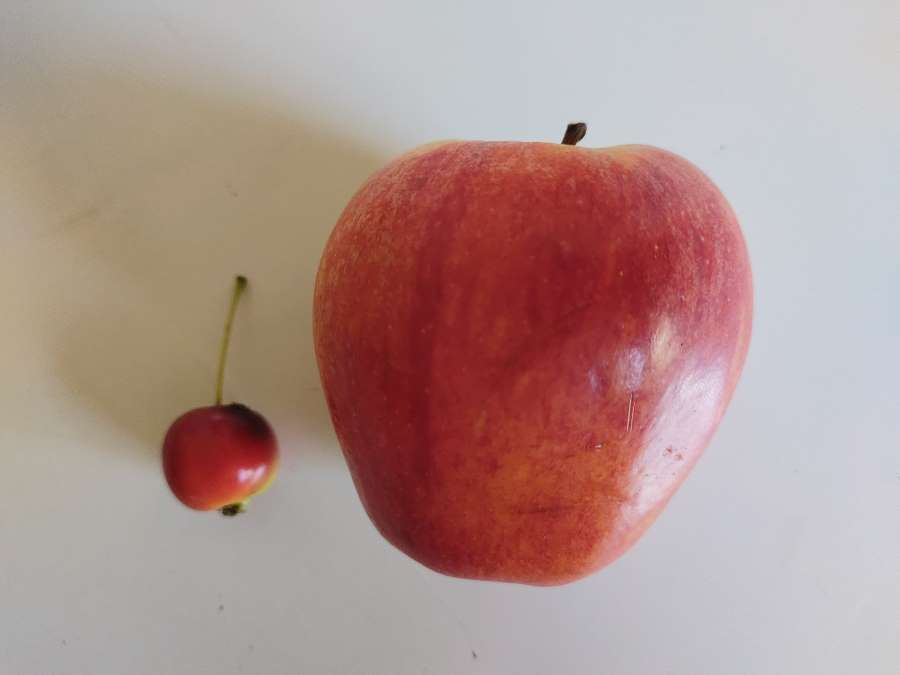While many people have come to the carnivore diet to lose weight and have successfully achieved their goals, some may have gained weight instead. This post covers seven scenarios where people may gain weight or struggle to lose weight on this diet.
If you have just started the carnivore diet
If you have just started the carnivore diet, you may gain weight initially.
This is because if you’ve come from a diet that either lacks essential nutrients (e.g. one that is comprised of mostly junk and ultra-processed foods) or is loaded with nutrients but your body is unable to absorb them well (e.g. one that has a lot of anti-nutrients as well as essential nutrients such as a wholefood vegan diet), your nutritional status is likely not optimal.
When you switch to the carnivore diet and begin to eat the food that the human body is meant to eat, you are likely to have a lot of appetite, your meat and fat intake will increase and you may initially gain weight as a result. This was what I had experienced too.
But this is totally natural and shouldn’t be a cause for concern, your appetite will eventually settle down once your nutritional status issue is addressed.
If you have a seriously compromised digestive tract
If you have a compromised digestive system due to health issues like celiac disease or Crohn’s disease, your body may have not been able to properly absorb nutrients. As the carnivore diet has the potential to heal your digestive tracts and improve nutrition absorption, it may lead to weight gain.
Celiac disease is an autoimmune condition where the body inappropriately responds to gluten (present in wheat, barley, malt, and triticale) by attacking the lining of the small intestine. [1, 2]
These attacks over time will damage the small intestine and lead to malabsorption and, consequently, many other health issues, one of which is weight loss. Weight loss is a common symptom among both children and adults with celiac disease. [3, 4, 5, 6]
Similarly, people with Crohn’s disease tend to suffer from weight loss due to nutrient loss and malabsorption caused by inflammation in the gastrointestinal tract. [7, 8, 9]
By cutting out all plant-based food, the carnivore diet has the potential to fix the gastrointestinal tract for those with celiac disease, Crohn’s disease, or intestinal permeability and help them gain weight accordingly. [10, 11, 12]
If you add fruits and honey to your diet
Even if you can tolerate fruits and honey well, adding them to your meat-based diet may lead to weight gain.
If you can limit your intake of fruits and honey to a very small amount, it probably won’t affect your waistline in any significant way.
However, the key problem with any sugar-laden food like fruits and honey is it can be addictive and easily lead to overconsumption and consequently weight gain. [13, 14, 15]
Because our ancestors were faced with food scarcity most of the time over millions of years of evolution, our brain has been hard-wired to overconsume calorie-dense food to give us a better chance of survival during famine time.
When we eat sugar-rich food, our brain releases dopamine, a neurotransmitter that makes us feel good and this can easily lead to cravings, overeating and fat gain.
This is perfectly fine if, at some point in time, we are faced with food shortages like how our ancestors used to and have the opportunity to burn the stored fat off.
However, in today’s environment where food is readily available in abundance all year round at affordable costs for most people, we rarely ever face food shortage problems and the fat we gain tends to stay with us (unless we drastically change our diet and lifestyle).
There is an argument that fruits and honey were part of our ancestors’ diet and we should include them to stay healthy. Well, the fruits that our ancestors used to eat are nothing like what we have access to today.
Below is a photo I took of a wild apple next to a supermarket apple. Wild apples are tiny and sour whereas domesticated apples are gigantic and super sweet. If we’re eating these modern-day fruits to try to mimic our ancestors’ diet, we’re just kidding ourselves.

Fruits and honey are delicious, there is no doubt about it. If you can handle them well and you are already at a healthy weight, it’s probably okay to keep them as part of your animal-based diet.
However, if you are trying out the carnivore diet and can’t seem to get rid of some stubborn excess fat, try to experiment with a strict carnivore diet and cut out all fruits and honey to see if that can help.
If you add dairy to your diet
Similar to fruits and honey, milk and dairy products in general could be the reason that you are gaining weight or not seeing as much fat loss as you expect.
Milk is designed for a growing calf with a perfect ratio of fat, protein, sugar, and other nutrients. Although it is incredibly nutritious, if you are past the growing phase, maybe it’s a good idea to stop drinking milk or only drink a small quantity on occasion.
One cup of milk has around 150 calories with 13 grams of carbs, 8 grams of fat, and 8 grams of protein. If you have just one cup of milk a day, it won’t be much, but if you tend to get carried away and drink it instead of water, it will add up to a lot of sugar quickly.
With regard to cheese, although it has almost no carbs, cheese is especially high in calories. For example, 100 grams of cheddar cheese has over 400 calories whereas 100 grams of lean beef has only around 150 calories.
In addition, cheese also has a very low satiety level. If you love cheese, you know how hard it is to limit yourself to just one recommended serving of cheese (25g) at a time.
Apart from some anecdotal evidence (where people say cutting out dairy helps them lose their last few pounds), there isn’t much evidence linking drinking milk or consuming dairy products with weight gain. [16]
However, if you gain fat on a carnivore diet that includes milk, cheese, and other dairy products, you can experiment with cutting them out to see whether it has any impact on your weight or how you feel.
If you still drink alcohol
If you still drink alcohol despite cutting out all other plant-based food, it could very well be what makes you gain weight or prevent you from losing excess fat.
Alcohol is high in calories. There are over 300 calories in just two cans of regular beer. A few drinks on a night out can easily add up to 400 to 500 calories in a short time. Those extra calories are empty calories because they come with no nutrients while accompanied by a toxic substance. [17]
In addition, alcohol reduces your testosterone and muscle synthesis, both of which reduce your basal metabolic rate and can contribute to weight gain. [18, 19, 20]
Alcohol can also increase your stress hormone, cortisol, which triggers your fight and flight mode. Too much cortisol encourages fat storage in your body. [21, 22, 23]
Finally, alcohol lowers inhibition and affects your judgment and you tend to make poor food choices under the influence of alcohol. Alcohol can also cause overeating because it increases hunger signals. [24]
In short, you’ve done a great job by cutting out all plant-based food, but if you can finally kick alcohol out of your life, it will affect how you look and feel and improve your life in many positive ways too.
If you use artificial sweeteners
Artificial sweeteners, although being used to reduce calorie intake, have been found to be associated with weight gain and, if you still use them on your carnivore diet (e.g. in tea, coffee, or carnivore desserts), you should cut them out.
In a review of 37 studies that followed more than 400,000 people over 10 years, researchers found that the consumption of artificial sweeteners such as aspartame, sucralose, and stevioside does not help with weight management. [25]
Of the 37 studies, seven were randomized controlled trials (considered to be the most scientifically rigorous method of hypothesis testing available). Those RCTs do not support the intended benefits of artificial sweeteners for weight management. [26]
The remaining 30 cohort studies were observational in nature and their findings suggest that regular intake of artificial sweeteners is associated with weight gain and cardiometabolic risks. [27]
This finding is consistent with results from animal studies in both agribusiness and lab settings. Feeding animals artificial sweeteners not only encourages them to eat more and gain weight but also induces metabolic alterations. [28]
In addition to weight gain, alarmingly, artificial sweeteners have been found to adversely alter gut microbiota and induce glucose intolerance in both animal and human studies. [29, 30]
If you have leptin sensitivity
If you have leptin resistance, you will have reduced satiety and become prone to overconsumption which can result in weight gain or difficulty in losing weight. [31, 32]
Leptin is a hormone produced by fat cells in your body that plays a critical role in regulating appetite and metabolism.
When the amount of adipose tissue increases, the amount of leptin produced increases accordingly and this signals the brain to reduce hunger and increase energy expenditure. For this reason, leptin is also referred to as the “satiety hormone”.
On the other hand, when the amount of adipose tissue decreases, leptin production decreases accordingly and the brain senses energy deficit, sends out hunger signals as well as promotes energy-sparing mechanisms. [33]
In essence, in a metabolically healthy individual, leptin helps maintain a healthy body weight.
Leptin sensitivity refers to the body’s ability to respond to leptin signals, i.e the degree to which the brain is able to recognize and respond to the signals sent by leptin.
If the body becomes resistant to leptin, it can lead to a condition called leptin resistance, where the brain no longer responds to the signals sent by leptin, leading to increased hunger, overconsumption of food, reduced energy expenditure, and ultimately weight gain, obesity, and other metabolic disorders. [34]
If you are either overweight or obese prior to starting the carnivore diet, you are likely to have leptin resistance which makes it hard to lose weight.
Dietary interventions, including fasting, energy restriction, exercise, and switching from high-fat to low-fat diets, have been recommended to help induce leptin resensitization. [35]
Other posts you might be interested in
How to Lose the Last Few Pounds on the Carnivore Diet?
How to Avoid Weight Gain During the Holidays
Who Might Benefit from a Strict Carnivore Diet?
Raw Meat Vs Cooked Meat on the Carnivore Diet
Disclaimer: The information in this post is for reference purposes only and is not intended to constitute or replace professional medical advice. Please consult a qualified medical professional before making any changes to your diet or lifestyle. Please check out our disclaimer for more detail.





